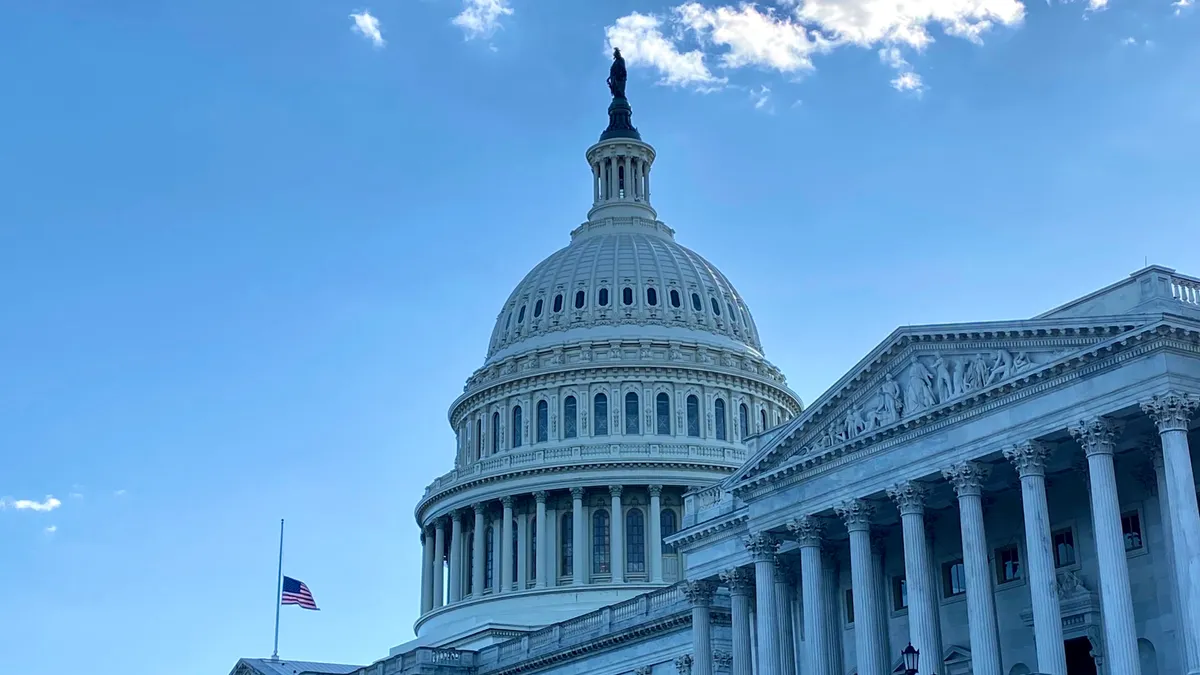UPDATE April 11, 2022: President Joe Biden on Friday signed the two bills into law, suspending normal trade relations with Russia and ending energy imports from the country.
Dive Brief:
- U.S. legislators voted Thursday to suspend normal trade relations with Russia and ban oil imports from the country amid the ongoing war in Ukraine.
- The Senate unanimously voted to revoke most-favored nation status, or permanent normal trade relations as it's called in the U.S., for Russia and Belarus. The chamber separately passed a bill to ban imports of oil, gas and coal from Russia.
- The bills now head President Joe Biden's desk after the House of Representatives signed off on amendments to both measures Thursday afternoon. The bills had initially passed the House earlier this year, but had remained stalled in the Senate over concerns the legislation would give the executive branch too much power.
Dive Insight:
Revoking normal trade relations will immediately raise tariffs on certain imports from Russia, and the bill legislators approved Thursday potentially sets the stage for further sanctions in the future.
Imports from Russia will be subjected to new tariff rates set under column 2 of the U.S. Harmonized Tariff Schedule. Only two other countries — North Korea and Cuba — do not have normal trade relations with the U.S. and are subjected to these rates.
"Combined with the energy import ban, which targets 60% of what Russia sells us, this provision targets the remaining 40%, hurting Russia’s economy and cutting off funding for its war effort," Rep. Kevin Brady of Texas, Republican Leader of the Committee on Ways and Means, said on the House floor Thursday.
U.S. steelmakers are among those warning of potential impacts from ongoing trade tensions. Russia is a major supplier of ferroalloys, which are used to make steel. Steelmaker Cleveland-Cliffs said it relies on Russia for iron ore, while Nucor said it depends on the country for metal scrap products.
"If political conditions in those countries or their relations with the United States or each other further deteriorate, or such countries were to become subject to sanctions or other restrictions or interruptions in trade with the United States, it may materially affect the price and availability of scrap and scrap substitutes," Nucor wrote in a 10-K.
Still, some of Russia's major exports into the U.S. wouldn't be affected by the change in rates — fertilizers, platinum and palladium would see no major rate changes, for example. It is possible, however, that those products could be subjected to new duties in the future. The bill approved by Congress empowers the president to impose rates that are higher than what's listed in the tariff schedule.
Members of Congress also approved a bill banning energy imports from Russia, mirroring an executive order issued by Biden last month. The Senate amended both measures, tweaking language around the process for restoring trade relations with Russia and resolving concerns from Republicans around a provision that expanded the president's power to impose sanctions in response to serious human rights abuses.















